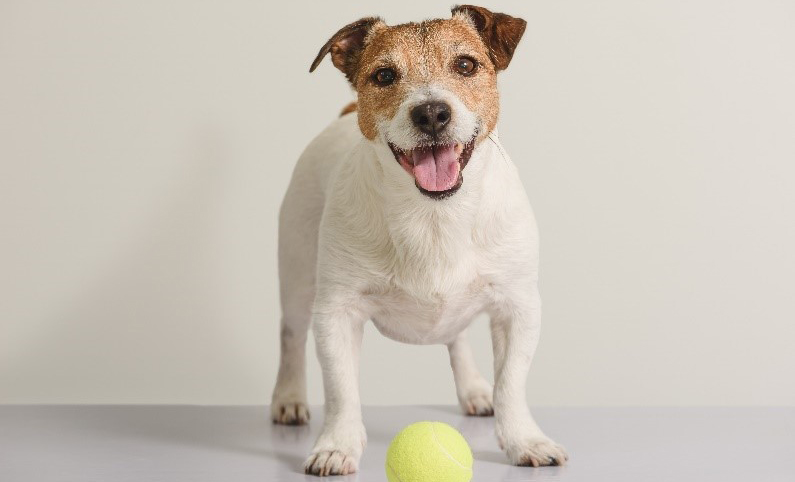For many dog owners, pet insurance that covers dental is a must. This guide will help you find the best pet insurance with dental cover as standard. And what to look out for when comparing pet insurance policies.
Does pet insurance cover dental cleaning? If you assume dental cover comes as standard on all pet insurance plans, think again. Different providers offer different limits for dental treatment, and some offer no dental cover at all.
Is there pet insurance that covers dental?
Let’s start with the burning question: Can you claim dental on pet insurance?
Contrary to popular belief, most pet insurance UK policies don’t include dental insurance policies. Dental insurance is often an added extra that you have to pay for.
Where dental cover is included, it will usually follow the same terms of your pet insurance cover. For example:
Accident only pet insurance:
Dental treatment to fix an injury following an accident.
Time limited pet insurance:
Dental cover for a fixed period of time or up to a fixed amount. Any treatment needed beyond that, you will have to pay for yourself.
Maximum benefit pet insurance:
New dental issues are covered up to a set amount each year
Lifetime pet insurance:
Your pet is insured for life. Dental treatment can be claimed for up to a fixed limit each year.
If you want to be sure dental cover is included on a policy, the first question you need to ask an insurer is: ‘What dental work can I claim for on pet insurance?’ If the answer is none (or very little), that’s your cue to compare insurance policies from other providers.
Dental treatment not covered by pet insurance
Pet insurance protects you from unexpected costs. But it does not cover your pet for routine and preventative dentistry. Plus, the majority of insurance providers do not offer pet dental insurance for pre-existing conditions so you may have to seek out private dental insurance.
You will have to cover the following costs yourself:
- Routine dental check-ups.
- Scale and polish: Removing tartar and bacteria from the teeth, followed by polishing.
- Treatment that is required for pre-existing conditions or because your pet has missed an annual dental check-up.
- Cosmetic dental treatment.
Always read the small print so you understand exactly what’s covered and you’re not faced with any unexpected dog dental insurance costs.
Why you need pet insurance with dental cover
There are a number of reasons why your dog or cat might need dental treatment. Any animal can suffer from issues such as cavities, ulcers, gum disease and bad breath, and some breeds of dog are more prone to dental disease than others.
Dogs use their mouths far more than humans – they are forever carrying, chewing and grooming. While this is handy, it also increases the risk of sustaining a dental injury that needs treatment.
Unhealthy teeth and gums aren’t just painful, they can also lead to more serious health issues. For example, dental disease in dogs can lead to kidney and heart disease.
Having pet insurance with dental cover as standard means you can avoid hefty vet’s bills if your pet does develop a dental problem.
Signs of dental problems in pets
It’s not always easy to spot dental problems in dogs and cats. However, as soon as you do, it’s vital that you see a vet as soon as possible. It might just be a case of changing your pet’s diet or behaviour.
Where treatment is required, the sooner you seek professional attention, the better.
Here are some of the most common signs of dental issues in your pet’s teeth:
- Red gums
- Discoloured teeth
- Wobbly or missing teeth
- Swollen, darker or bleeding gums
- Bad breath
- Excessive drooling
- Struggling to eat/ preference for soft food rather than biscuits
- Pawing the face and mouth
- Loss of appetite and/or weight
If you think your pet might be experiencing any of these symptoms, you should make an appointment to see a vet straight away.
Common dental problems in dogs
Unlike their human owners, dogs don’t tend to get serious tooth decay. However, many dogs aged three years or over experience some kind of gum disease.
Pet healthcare has improved greatly over the years. But early treatment is essential. Vet’s bills can quickly add up, but having pet insurance in place can help you cover those costs.
Here are some of the dental conditions that can affect dogs.
Plaque and tartar build-up
Plaque is a build-up of saliva, food and bacteria that is left on the teeth. Left too long, it turns into a yellow or brown substance known as tartar.
Tartar is much harder than plaque and needs to be scraped off by a vet. The longer tartar is left in contact with teeth and gums, the more likely it is to cause tooth decay, wobbly teeth and gum disease.
Gingivitis
Gingivitis is a swelling of the gums particularly around the tooth line that is caused by the build-up of plaque and tartar. It is a painful condition that causes the gums to become red, highly sensitive and bleed easily.
Left untreated, it can soon lead to periodontal disease. It is important that gingivitis is treated as quickly as possible as the damage (for example, teeth becoming loose and falling out) is irreversible.
Infections
When gums become damaged they can create an open space around the root of the tooth. If that space becomes filled with bacteria, it can cause infection. This can lead to an abscess which is painful and can cause swelling on the side of the face.
Infections can also be caused by secondary trauma from things like chewing on a hard or sharp object.
Cracked or broken tooth
Teeth are pretty strong, but if weakened by dental problems or as the result of an accident, they can crack. This can be extremely painful, and once a crack has occurred, your pet is at much higher risk of infection. Bones, antlers and hard plastic can cause teeth to break in this way so should be avoided.
Tooth extraction
Pet dental care is all about keeping your pet’s teeth and mouth as healthy as possible. Tooth extraction is a last resort – but it can happen. Aside from being emotionally upsetting for you as your pet, there are the costs to think about, too.
If you’ve ever looked into how much it costs to have your dog’s teeth pulled or how much it costs to have a cat’s teeth removed, you’ll know it’s not cheap.
According to figures published by canine joint supplement company YuMOVE, tooth removal under anaesthetic can set you back between £200 and £1,000 (depending on the number of extractions).
By comparison, the cost of a dental x-ray is £35-75, while a scale and polish treatment under anaesthetic starts from around £120.
Looking after a dog or cat’s teeth
Making sure your dog has a healthy mouth involves more than just regular dental check-ups. You also need to include looking after your pet’s mouth and teeth in their grooming routine.
3 ways you can keep your dog’s teeth healthy include:
1. Brushing their teeth:
Do dogs’ teeth really need to be cleaned? In short, yes they do.
Even though the thought of getting up close and personal with your dog’s gnashers might not fill you with joy, the benefits are huge. In fact, many dogs love that attention that comes with a good tooth brushing session.
Always use a toothbrush and toothpaste designed for dogs; human toothpaste can lead to kidney failure in pets. And start brushing your pet’s teeth from a young age. This will familiarise them with the process and help cement it into your routine.
Read more in our guide to cleaning an older dog’s teeth.
2. Giving them dental toys and chews:
Invest in toys and dental chews that are designed to stop the process of hardening plaque on the teeth.
3. Feeding them a healthy diet:
A good diet is important for pets for a number of reasons – including good dental hygiene. Giving them food they need to chew on can help reduce plaque build-up.
Your vet can recommend a ‘dental diet’ that could help reduce the risk of gum disease.
Dog insurance cover levels overview

For your dog

For your dogs, for your cats or for both
Does Petwise cat and dog insurance include dental cover?
Finally, does pet insurance cover tooth removal? At Petwise it does.
We believe that a dog or cat’s dental health is just as important as their overall health. Which is why we include dental cover as standard on all our cat and dog insurance policies.
As long as your pet has had regular dental check-ups – including a dental examination by your vet in the past 12 months – we will cover the cost of treatment for all dental injury and illness. We also require that any recommended treatment is carried out within three months of the examination for a claim to be valid.
If a vet advises or recommends a certain type of treatment, it is important that you ensure your pet receives that treatment in a timely manner. If not, you may find your claim is not paid.
But most importantly, if you think your pet may be suffering, you must seek medical attention as soon as possible.
Find pet insurance cover that looks after your pet’s teeth
The older your pet gets, the more likely they will experience health or dental concerns. At Petwise, we’re committed to helping you find the right cover for your pets. Specialising in insurance for older pets, we help you find the best insurance policy for you.
Our policies come with a range of benefits as standard, including dental cover, farewell cover, senior food contribution, and no upper age joining limit (we insure dogs and cats aged seven years and older).
We also offer our customers a vet helpline that is open around the clock. We know that any concerns about the health or wellbeing of a much-loved family pet can be stressful, but it’s not always possible to see a vet immediately.
The Petwise 24-Hour Vet Helpline helps reduce some of that anxiety, with unlimited access to video consultations with a full-qualified vet. Simple to use and at no extra cost, you can get instant answers to any questions or concerns about your pet’s dental or overall health.
We can also pay your claim directly to the vet on your behalf.
Find out more about our insurance cover and get a free quote from Petwise today.
*Terms and conditions may apply
Pet news & advice

Are you ready for Winter?
11/12/23
Winter is the season for cold icy weather, dark evening strolls, crunching in the snow and brisk frosty walks.

How to mentally stimulate a senior dog: An in-depth guide
20/11/23
As your beloved dog reaches their golden years, keeping their mind sharp becomes more important than ever. Cognitive stimulation can not only enrich your senior dog's life but also slow down the natural cognitive decline that comes with ageing. This comprehensive guide will walk you through different strategies on how to mentally stimulate a senior dog.

Senior pet fitness: The importance of exercise
16/11/23
Senior dogs are more likely to have health conditions or other problems that might limit how much they can exercise.
